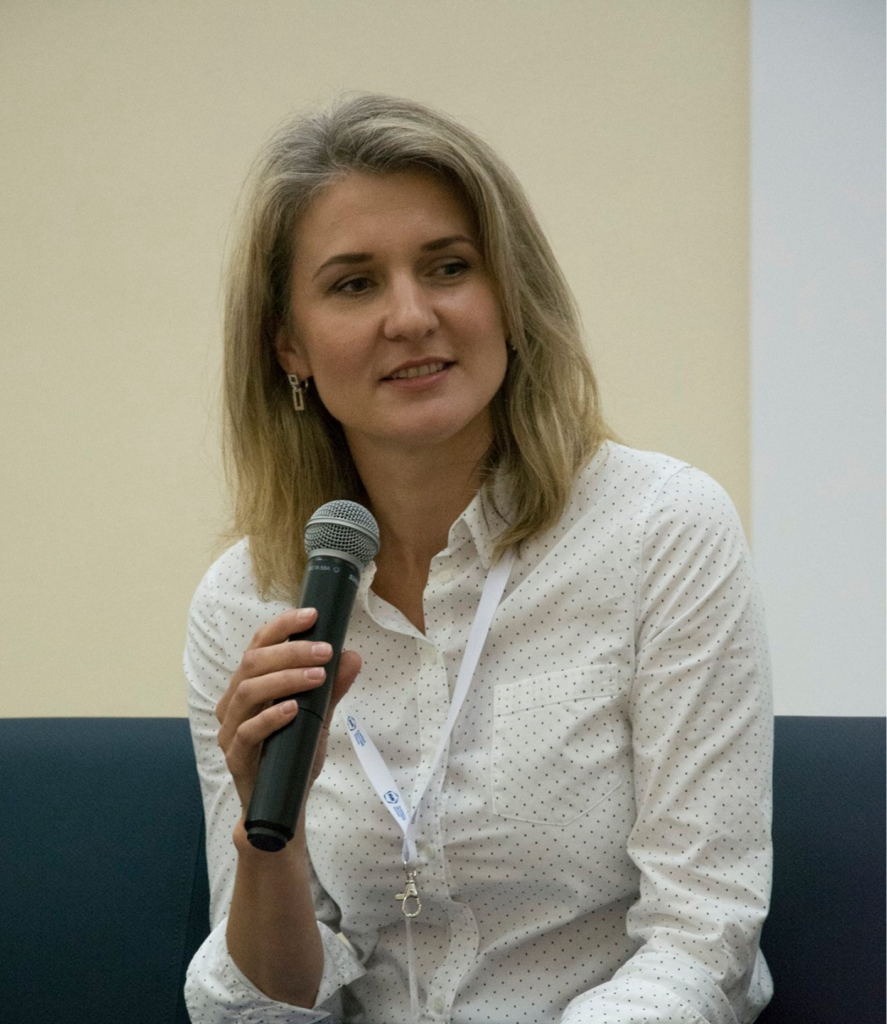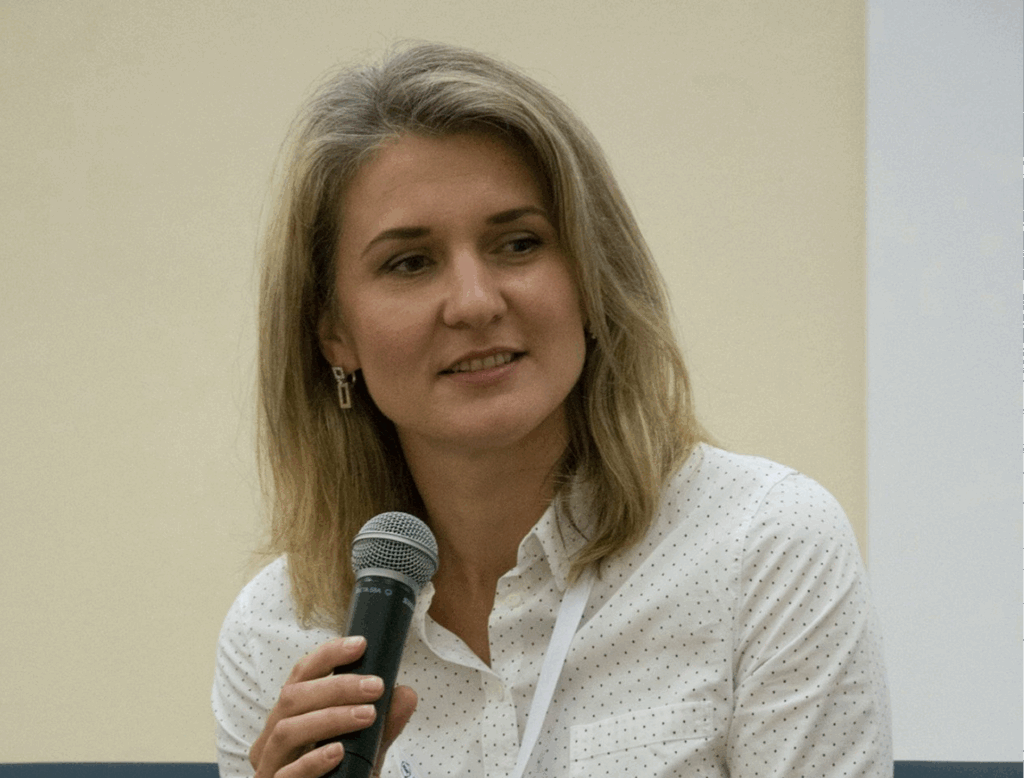In the first of our new interview series, we had the chance to talk to Erika Zavackienė, Project Manager at the Klaipėda Science and Technology Park (KSTP), one of the DigiTechPort2030 project partners. Erika sat down with us and gave us a brief introduction into the Green Compass Tool, which we will be introducing in greater detail in future articles, as well as other initiatives the KSTP is currently involved in.
DigiTechPort2030: In your opinion, why has the decarbonization of the maritime transport sector become such a prevalent topic in recent years?

Erika: Sustainable and clean energy has become a global priority, particularly within the European Union’s agenda for achieving climate neutrality by 2050. The maritime sector plays an important role in this transition, with decarbonisation emerging as a key objective. Green fleet development, zero-emission port operations, and advancements in alternative fuels are essential to ensuring a sustainable future. Regulatory support and technological innovations have further accelerated the sector’s commitment to reducing its environmental impact.
DigiTechPort2030: What solution/tool in particular are you working on within the DigiTechPort2030 project that will help ports to reduce emissions?
Erika: Due to our location in the Baltic Sea Region, supporting blue and green technology innovation has always been a top priority for the Klaipėda Science and Technology Park (KSTP). As part of the DigiTechPort2030 initiative, KSTP is developing the Green Compass Tool, a digital platform designed to guide small and medium-sized ports (SMSPs) in their transition to green energy sources.
This tool provides SMSPs with a structured framework for implementing renewable energy solutions, optimizing operational mechanisms with minimal environmental impact, and tracking progress through self-assessment. By utilizing the Green Compass, ports can effectively position themselves within the maritime sector’s sustainability landscape and chart a clear path toward green transformation.
DigiTechPort2030: Scalability of innovative tools and solutions is always a challenge – will the Green Compass be also useful to smaller ports, not just their “bigger colleagues”?
Erika: A key challenge in maritime decarbonisation is ensuring that innovative tools are accessible to all ports, regardless of size. While large ports often have greater financial and logistical capacity to implement green technologies, smaller ports face additional barriers due to limited resources and policy support. Despite these challenges, they are equally subject to EU environmental targets and regulations.
DigiTechPort2030 addresses this gap by offering adaptable, scalable solutions through the Green Compass Tool and pilots. By focusing on flexible and smart applications, KSTP ensures that SMSPs can effectively plan and execute their green energy transition initiatives, making green energy transformation a reality for all ports.
DigiTechPort2030: Could you share with us other sustainability-focused initiatives and projects the Klaipeda Science and Technology Park is currently working on?
Erika: With over 60 international and national projects under our belt, we mostly specialise in promoting innovation and sustainable development of the maritime sector, aquaculture, green energy through bringing together business, academia, and other stakeholders. Currently, together with Cool Blue Future partners we are exploring ways to bring regenerative ocean farming practices throughout Baltic Sea coastlines, which not only secures alternative marine food supply, but also benefits to entire marine ecosystem. Also, we have started the BePacMan project which focuses on extending the life cycles of paper packaging through cross-sector and cross-border approaches to reuse in the South Baltic region. The aim is to develop sustainable concepts, solutions and business models and support SMEs. In terms of the maritime transport sector, we are partner in Blue Supply Chains project that focuses on creating emission reduction solutions for port activities and transport chains.
DigiTechPort2030: Thank you for your time!
Keep an eye out for future interviews showcasing the DigiTechPort2030 project partners!
Don’t forget to visit us on LinkedIn for more updates.

